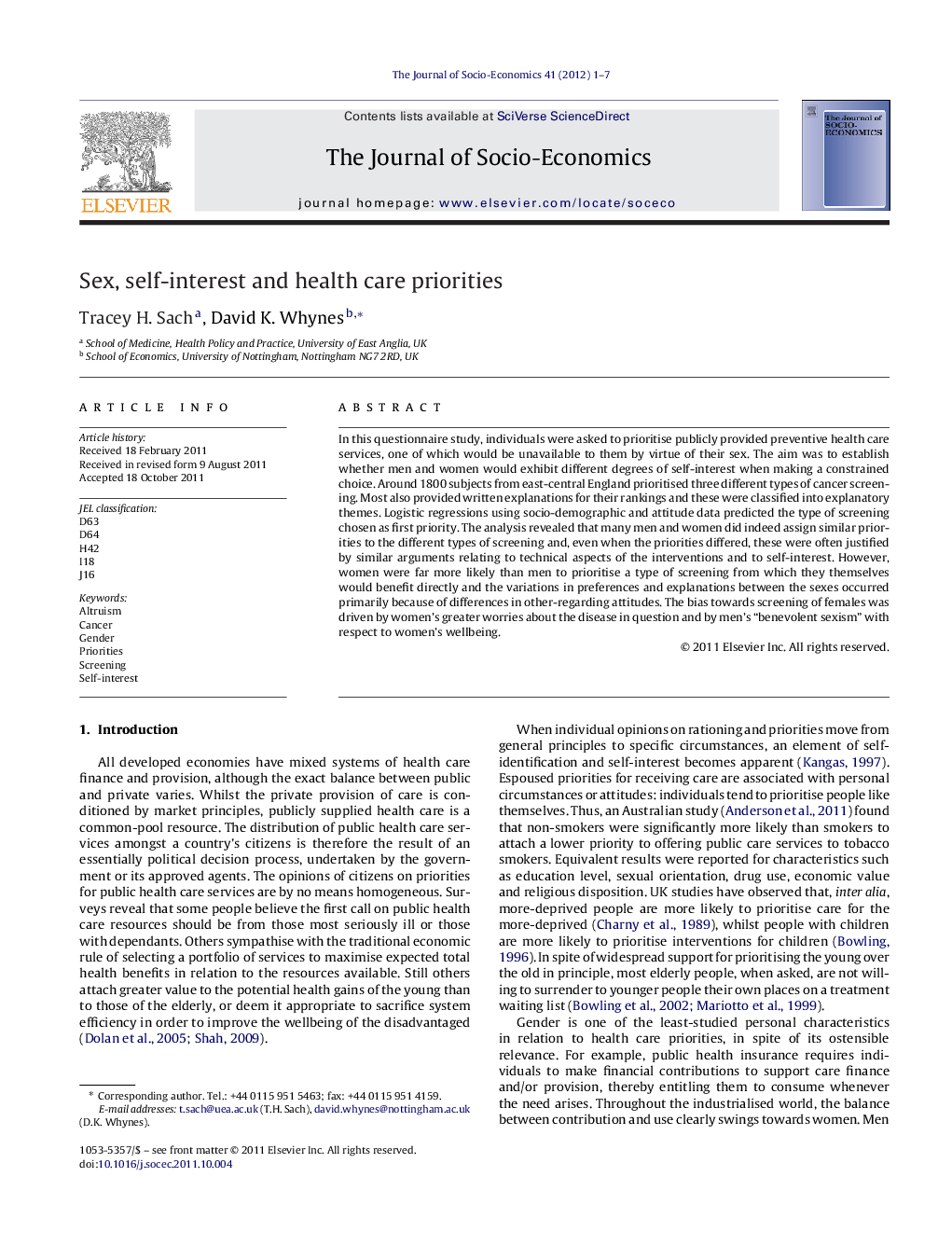| Article ID | Journal | Published Year | Pages | File Type |
|---|---|---|---|---|
| 971257 | The Journal of Socio-Economics | 2012 | 7 Pages |
In this questionnaire study, individuals were asked to prioritise publicly provided preventive health care services, one of which would be unavailable to them by virtue of their sex. The aim was to establish whether men and women would exhibit different degrees of self-interest when making a constrained choice. Around 1800 subjects from east-central England prioritised three different types of cancer screening. Most also provided written explanations for their rankings and these were classified into explanatory themes. Logistic regressions using socio-demographic and attitude data predicted the type of screening chosen as first priority. The analysis revealed that many men and women did indeed assign similar priorities to the different types of screening and, even when the priorities differed, these were often justified by similar arguments relating to technical aspects of the interventions and to self-interest. However, women were far more likely than men to prioritise a type of screening from which they themselves would benefit directly and the variations in preferences and explanations between the sexes occurred primarily because of differences in other-regarding attitudes. The bias towards screening of females was driven by women's greater worries about the disease in question and by men's “benevolent sexism” with respect to women's wellbeing.
► Cancer screening priorities are driven by both self-interest and altruism. ► Male and female preferences differ with respect to other-regarding attitudes. ► Women exhibit greater concerns about cancer than do men. ► Men display “benevolent sexism” with respect to women's wellbeing.
